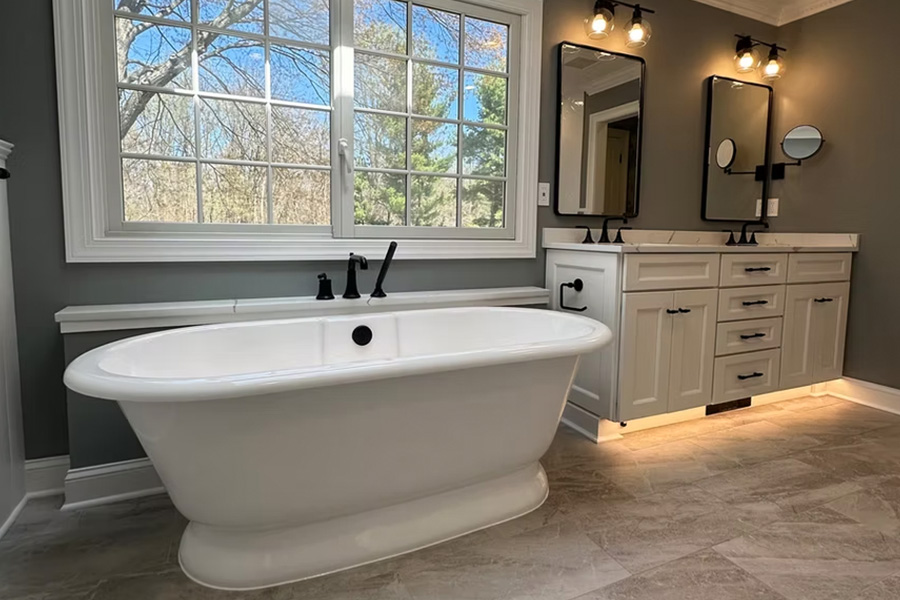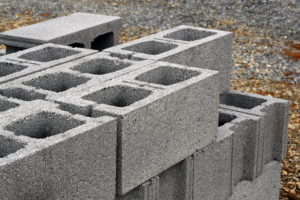
When hiring a bathroom remodeling or renovation contractor in New Jersey, verifying their licensing and certification is critical to avoid scams, poor workmanship, and legal issues. Here are the top 10 tips to ensure your contractor is properly credentialed:
1. Verify Their NJ Home Improvement Contractor (HIC) License
- All contractors performing work over $500 must be registered with the NJ Division of Consumer Affairs.
- Check their license status here: NJ Consumer Affairs License Lookup.
2. Ensure the License is Active & in Good Standing
- Look for no suspensions, complaints, or disciplinary actions.
- Avoid contractors with expired or revoked licenses.
3. Check for Additional Trade-Specific Licenses
If the remodel involves plumbing, electrical, or structural changes, the contractor (or their subcontractors) may need:
- NJ Master Plumber License (for plumbing work).
- Electrical Contractor License (for wiring, lighting changes).
4. Look for Industry Certifications
Reputable contractors often hold certifications like:
- NKBA (National Kitchen & Bath Association) – Indicates expertise in bathroom design.
- NARI (National Association of the Remodeling Industry) – Shows commitment to best practices.
- EPA Lead-Safe Certification (required if working in pre-1978 homes).
5. Confirm Business Registration
- The contractor should have a legally registered business name (LLC, Inc., etc.).
- Verify via NJ Business Name Search.
6. Avoid “Handyman” Services for Major Renovations
Handymen may not carry proper licensing for full bathroom remodels (especially plumbing/electrical).
7. Beware of Out-of-State Contractors Without NJ Licensing
Some contractors from PA or NY may not be properly licensed to work in NJ.
8. Ask for Proof of Insurance (Beyond Licensing)
They should have:
- General Liability Insurance (covers property damage).
- Workers’ Compensation (protects you if a worker is injured on-site).
9. Check for Municipal Permits & Compliance
- Bathroom remodels often require local building permits (especially for plumbing/electrical).
- A licensed contractor should pull permits themselves—if they ask you to do it, it’s a red flag.
10. Verify Their Physical Business Address
- Avoid contractors who only provide a P.O. Box or no address at all.
- A legitimate NJ contractor should have a local office or showroom.
Bonus Tip: Watch for Red Flags
- No written contract.
- Requests for full payment upfront (NJ law limits deposits to 1/3 of total cost).
- High-pressure sales tactics.
By following these steps, you can avoid unlicensed contractors and ensure your bathroom remodel is done legally, safely, and professionally. Would you like help finding licensed contractors in your NJ area?
How About Evaluating Communication & Responsiveness in NJ Bathroom Remodeling Contractors?
A contractor’s communication style and responsiveness can make or break your New Jersey bathroom renovation experience. Here’s how to ensure you hire someone who keeps you informed and addresses concerns promptly:
1. Initial Response Time
- A professional contractor should respond to calls/emails within 24–48 hours.
- If they take days to reply during the sales phase, expect worse delays during the project.
2. Clear & Detailed Communication
They should explain the process in simple terms (no contractor jargon).
Ask them to outline:
- Project phases
- Potential challenges
- How changes are handled
3. Preferred Communication Method
- Do they use email, phone calls, texts, or project management apps (like BuilderTrend or CoConstruct)?
- Ensure their method aligns with your preferences.
4. Dedicated Point of Contact
- Will you communicate directly with the owner, project manager, or a team member?
- Avoid contractors who hand you off to multiple people without clarity.
5. Frequency of Updates
- Ask: “How often will I receive progress updates?”
- A good contractor provides weekly (or even daily) briefings during active work.
6. Handling of Questions & Concerns
- Test their responsiveness by asking a few detailed questions before hiring.
- Do they answer thoroughly or give vague, rushed replies?
7. Transparency About Delays
- Renovations often face delays (material shortages, weather, etc.).
- The best contractors proactively inform you and adjust timelines realistically.
8. Availability During & After Work Hours
- Can you reach them in case of emergencies?
- Do they have a policy for after-hours urgent issues (e.g., water leaks)?
9. Online Reviews Mentioning Communication
Check Google, Yelp, and BBB for comments like:
- “Always kept us in the loop.”
- “Quick to answer calls.”
- “Avoid—ghosted us mid-project.”
10. Gut Check After the First Meeting
- Did they listen to your needs, or just push their own agenda?
- Were they on time, prepared, and professional?
Red Flags in Communication 🚩
- Slow responses during the bidding phase.
- No written contracts or vague promises.
- Defensive or dismissive when you ask questions.
Final Tip: Get It in Writing
Include communication expectations in the contract (e.g., update frequency, primary contact). A contractor who communicates well reduces stress, prevents misunderstandings, and ensures a smoother renovation.





